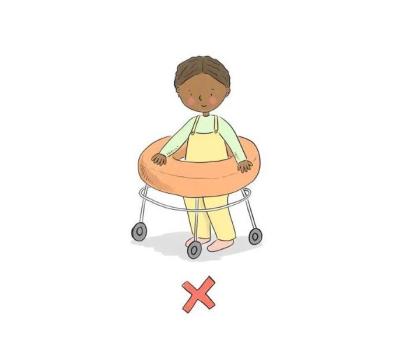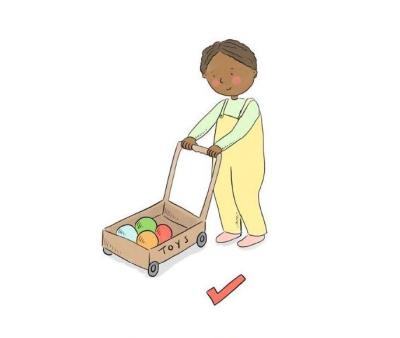Physiotherapists and other healthcare professionals DO NOT recommend the use of baby walkers

There are two main reasons for this:
Safety – even under supervision there are high numbers of accidents reported every year including: falling downstairs, head injuries, burns, scalds, and trapped arms / legs.
Delayed development – some studies have shown that baby walkers do not encourage development and may actually delay the achievement of standing and walking. Contrary to popular belief, they DO NOT teach a child to walk. They can cause a child to walk on their toes which may continue when they walk independently.
Play safe and encourage development without a baby walker

We recommend these alternatives:
- Encourage your baby to play on their tummy on the floor
- Encourage rolling and sitting up
- Encourage crawling and pulling to stand
- Encourage supported standing
These activities will help your child to learn about their body, explore their surroundings and progress to standing and walking.

WARNING: If you do use a baby walker with your child:
Never leave your baby unattended
Never let your baby near steps or open doors eg. patio window
Avoid use near open fires, cookers or radiators or trailing wires
Check floor is free of objects that could cause tipping
Your child can move at up to 7mph, faster than you can react
Make sure both feet are flat on the floor, not on their toes
Your baby should have good head control and ideally be able to sit up alone
Use for a maximum of 20 minutes at a time
- Only buy or use a baby walker that complies with BS EN 1273:2005: the date is important (the last four digits are the year the standard was approved, in this case 2005) because that’s when more stringent safety requirements were imposed. DO NOT BUY SECOND HAND BABY WALKERS.
